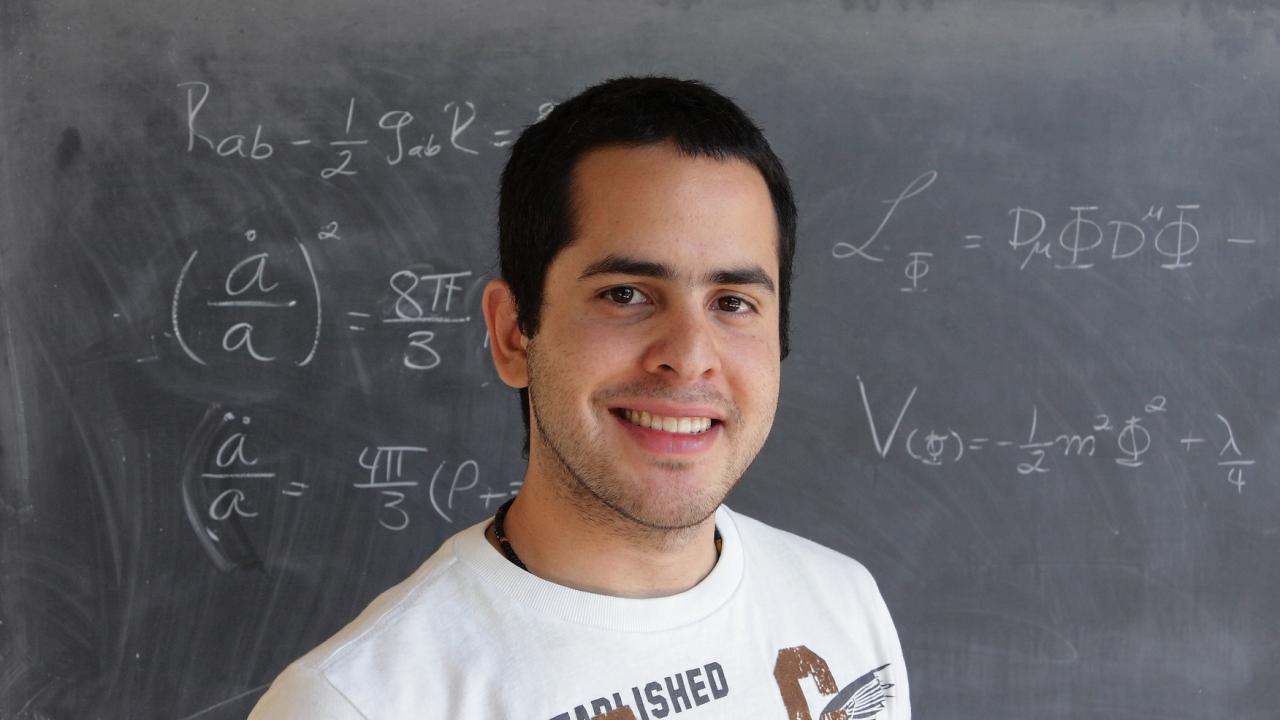
Thanks to the work of hundreds of high-energy physicists, CERN was able to locate what was likely to be the Higgs Boson earlier this year. It's a discovery that would complete the Standard Model of Particle Physics, which so far has been a fabulously successful descriptor of nature's building blocks. But there is still a lot of work to do on understanding the world of particle physics, extending even beyond the Standard Model, and ICTP Diploma Programme student Juan Carlos Vasquez Carmona wants to be a part of it.
When Vasquez Carmona completed his undergraduate studies in physics at Los Andes University in Merida, Venezuela, he longed to pursue a research career. But in a country whose economy is centred on the petroleum industry, there weren't many opportunities for him to study higher-level physics after graduating. "The only field where you could work is teaching," said Vasquez Carmona. "There's not much research in Venezuela. There are not many institutions. You can also work in the factories." But a mentor told him about ICTP and now he's finishing the year-long Diploma programme in high energy physics.
He enjoys studying physics because of what it can reveal about reality on a fundamental level. "I think these are the best moments to learn more and do research on the Higgs boson, because we have the Large Hadron Collider," said Vasquez Carmona. "We can probe new physics not within the standard model."
So what's beyond the Standard Model? Vasquez Carmona's work is on left-right symmetry. The motions of particles should be the same in both directions. But as it stands, particles in the Standard Model are out of balance. Some scientists think that this symmetry can be recovered at high temperatures. This is one of the many things experiments are still hunting clues on for at the Large Hadron Collider.
Vasquez Carmona has been accepted into the ICTP/SISSA joint PhD programme and will continue his studies on elementary particles. He ultimately wants to do research in this area. He doesn't know when he'll return to Venezuela. "It would be nice to go back after getting my Ph.D. ," he said. "But without work there it is difficult. We'll have to see what happens in the future."
Vasquez Carmona said that while at ICTP he learned how researchers really think about physics and wants to put his new knowledge to use. "ICTP has made a huge difference to my career and I'm very grateful for that."
















